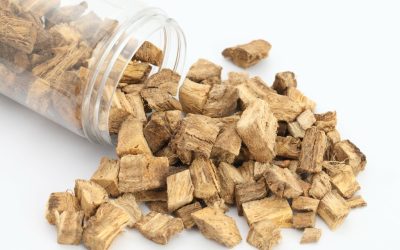People with Alcohol Use Disorder (AUD), also known as alcoholism, can exhibit self-absorption and a desire for admiration, similar to those with Narcissistic Personality Disorder (NPD). However, there are distinctions between the two that are crucial to recognize. Although it is a relatively new phenomenon, social media addiction has been around since the advent of sharing pictures and status updates online. A 2014 study into narcissism and the use of internet pornography found a direct correlation between hours spent viewing pornographic material and the extent of narcissism.
Can narcissism cause alcohol use disorder?
So resist the urge, give yourself some self-love, and seek out others who also treat you with love and respect. It is not your job to change the way a narcissist’s brain works; it’s your job to take care of yourself. When you are in close contact with someone with narcissistic tendencies, it is like getting a one-two DMN punch. Second, you have their DMN also evaluating your every move, in a dismissive and cruel way. Then, your DMN spins on the other person’s criticisms, validating the nonsense your DMN said in the first place (e.g., I am not worthy of love, I am not good enough).
Seeking help
With any mental health condition, the outlook is almost invariably better if you are treated than not treated. With NPD, for example, there are no drugs specifically used for the treatment of the personality disorder, but antidepressants or anxiolytics may Top 5 Advantages of Staying in a Sober Living House be prescribed if depression or anxiety is present. For AUD to be diagnosed, a person must meet one of four possible criteria for alcohol abuse, three of seven possible criteria for alcohol dependence, and two of 12 possible criteria for AUD symptoms.
Signs of an Alcoholic Narcissist

Narcissists are full of entitlement and lack empathy for others, so they may do whatever they want to others with no regard to their feelings. Alcoholics do the same when they put their https://fintedex.com/top-5-advantages-of-staying-in-a-sober-living-house/ drinking first without concern for how it affects others. Narcissistic Personality Disorder (NPD) is a disorder in which someone acts selfishly and thinks highly of themselves.

Dry Drunk and Narcissism
Vulnerable narcissism features traits like low self-esteem, helplessness, and rejection sensitivity. Risk factors for NPD include having difficult relationships with parents or caregivers during a person’s developmental years that may include excessive praise or criticism. With AUD, a person’s behavior may change depending on whether they are sober or not. An individual with NPD will display a consistent pattern of narcissistic behavior.

Alcoholic Narcissist: How the Two Conditions Are Related
People with AUD, also known as alcoholism, can display patterns of narcissism, including self-absorption and an underlying craving for admiration. Take our short alcohol quiz to learn where you fall on the drinking spectrum and if you might benefit from quitting or cutting back on alcohol. On the other hand, some people genuinely don’t know what they want, and could just be unsure about you. They might be nervous, not know how to communicate well, or they might be perfectly fine with being single and flirting and are trying to prevent any awkward conversations from happening. “While the person engaging in the behaviour may think it’s not a big deal, it can be quite damaging to those on the receiving end,” Dober shares. According to Dober, these behaviours include your date not committing to plans and leaving you hanging by the phone.
- No studies examined associations between narcissism and alcohol problems, problem expectancies, problem evaluation and readiness to change.
- Though it is against our prediction, it isn’t completely surprising that vulnerable narcissists expect to experience problems.
- Instead, they offer more fodder for the narcissist to blame you for making everything so bad.
- Your DMN piles on, feeling it has external validation for its negative beliefs.
Develop Coping Strategies
- While not all individuals struggling with alcohol addiction exhibit narcissistic traits, there is a notable overlap between the two conditions.
- Some common traits of individuals with both narcissism and alcohol addiction include a sense of entitlement, grandiosity, impulsivity, and a lack of empathy.
- However, the negative consequences of alcoholism and narcissism can be far-reaching, affecting relationships, work, and overall well-being.
- Grandiose narcissism was also a significant predictor of a positive alcohol problem evaluation, over and above alcohol use, social desirability and vulnerable narcissism.
- They may also exhibit a sense of entitlement, demanding unwavering attention and validation.
Narcissism is a personality disorder that may cause individuals to display grandiose and self-involved behaviors. Narcissism and alcoholism may both share similar characteristics and can occur at the same time. Recognizing these links traits may enable individuals to seek appropriate help in managing these conditions. Narcissistic personality disorder (NPD) and alcohol use disorder (AUD) are closely linked and can occur together as a dual diagnosis. NPD increases the risk of alcohol abuse as a means to escape difficult emotions. While diagnosis and treatment can be challenging, studies have shown that the successful treatment of a mental illness can lead to alcohol recovery in two out of every three cases.
